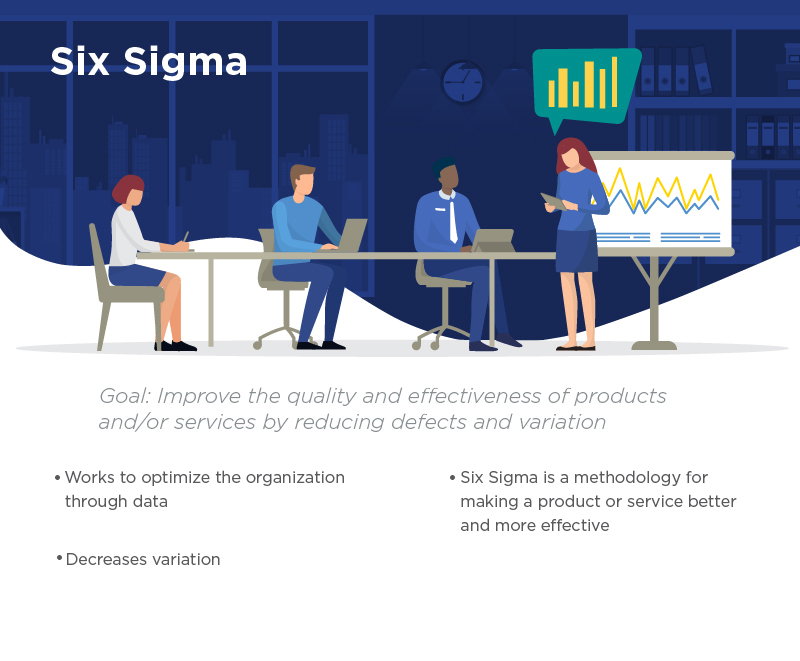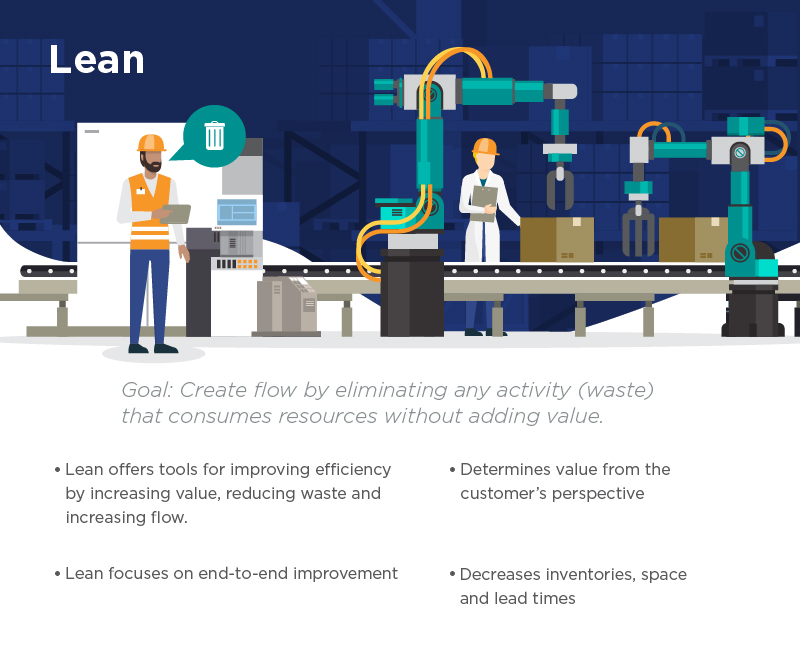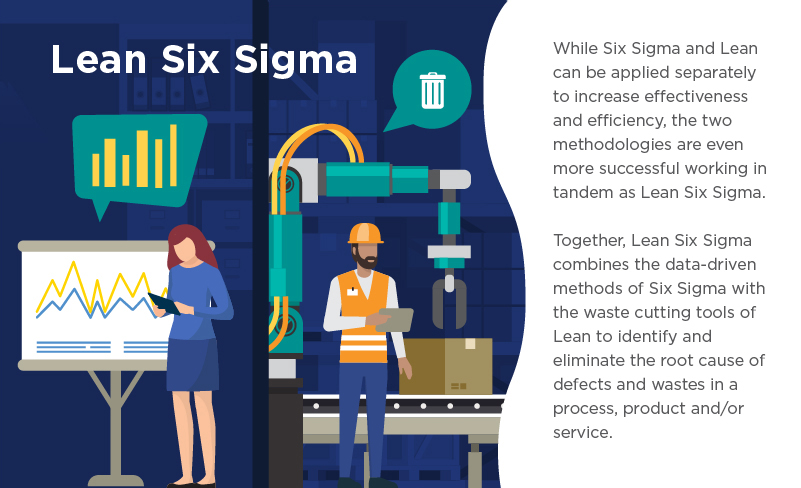Six Sigma vs. Lean Six Sigma

Last Updated March 29, 2012
There is an ongoing debate in the business world about whether Lean or Six Sigma is the better system to implement when it comes to streamlining business processes and eliminating waste. Both sides have proponents and detractors who can cite various situations in which one system may produce better results than the other.
Others argue that the best approach to creating the most efficient and effective business structure requires incorporating both Six Sigma and Lean principles. In order to view the debate in the proper context, however, you need to understand the differences and similarities between the two systems.
What is Six Sigma?

The essential goal of Six Sigma is to eliminate defects and waste, thereby improving quality and efficiency, by streamlining and improving all business processes. While it was first designed for use in manufacturing, practitioners quickly discovered that Six Sigma could be useful and applicable throughout all aspects of a business – from customer support to management to service delivery.
Today, Six Sigma plays a key role in the leadership of an organization, and its wide-scale implementation can help a company to achieve real and measurable results.
What is Lean?

Like Six Sigma, Lean is used by businesses to streamline manufacturing and production processes. The main emphasis of Lean is on cutting out unnecessary and wasteful steps in the creation of a product so that only steps that directly add value to the product are taken.
As far as Lean methodology is concerned, the only way to determine if something has value or not is to consider whether a customer would be willing to pay for it. Any part of the production that does not add value is simply removed from the equation, leaving a highly streamlined and profitable process in place that will flow smoothly and efficiently.
What is Lean Six Sigma?

Essentially, 6 Sigma and Lean systems have the same goal. They both seek to eliminate waste and create the most efficient system possible, but they take different approaches toward how achieving this goal. In simplest terms, the main difference between Lean and Six Sigma is that they identify the root cause of waste differently.
Lean practitioners believe that waste comes from unnecessary steps in the production process that do not add value to the finished product, while 6 Sigma proponents assert that waste results from variation within the process.
Of course, there is truth in both of these assessments, which is why both Lean and Six Sigma methodologies have been so successful in improving overall business performance in a variety of fields. In fact, these two disciplines have proven to be especially successful when working in tandem – hence the creation of Lean Six Sigma.
Villanova Lean Six Sigma Training
The reality is that the broader your toolkit, the better prepared you are to tackle the complex problems that businesses face in today’s competitive marketplace.
The good news is that you can obtain comprehensive training in both Lean and Six Sigma from a single source with individual Six Sigma courses and a Lean Six Sigma certificate program offered by Villanova University.
Furthermore, Villanova administers Six Sigma and Lean Six Sigma certification exams 100% online to students who successfully complete the associated Six Sigma course. Students can enroll in Six Sigma Green Belt, Lean Six Sigma or Lean Six Sigma Black Belt courses, or complete all three to earn a Certificate in Lean Six Sigma. Students who complete the Lean Six Sigma Black Belt course are also eligible to take the Master Black Belt course and corresponding certification exam. Earning Master Black Belt certification indicates mastery of Six Sigma concepts.
With Villanova’s flexible, 100% online e-learning platform, you can gain essential Lean and Six Sigma skills at your convenience to improve your company’s standing – and your own – in the business world.





